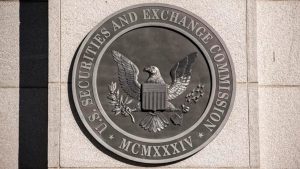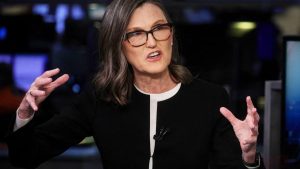Crypto Trading Crucial to Virtual Asset Ecosystem, Says Hong Kong SFC Chief

Cryptocurrency trading is an important part of the virtual asset ecosystem, according to Julia Leung Fung-yee, CEO of the Securities and Futures Commission (SFC) of Hong Kong.
In a recent speech, Leung said the city-state recognizes the importance of crypto trading, adding that it welcomes the application of related technologies to financial services, including bond tokenization and investment funds.
The CEO also mentioned that Hong Kong’s embrace of Web3 regulation has been crucial to the development of its virtual asset ecosystem following the collapse of the crypto exchange FTX in November 2022.
She outlined how the new licensing system for virtual asset providers would ensure that investors are protected while considering the risks that financial institutions face.
Incorporating virtual asset providers into the regulatory system, in her view, was the only way to embrace innovation and strengthen market trust after FTX’s bankruptcy.
Following the collapse of FTX, Hong Kong started taking measures in a bid to reduce regulatory risks associated with centralized exchanges.
In December 2022, its legislative council included virtual asset service providers in the same legislation governing traditional financial institutions.
Furthermore, the city’s financial regulator implemented its new regulatory framework for crypto on the first of June.
The new rules introduce strict Anti-Money Laundering guidelines and investor protection laws to digital asset exchanges looking to open a business in Hong Kong.
It also allows retail investors the ability to trade virtual assets, instead of restricting digital assets trading to professional investors and traders with at least $1 million in bankable assets.
Hong Kong Pressures Banks to Engage With Crypto Clients
Earlier this month, the Hong Kong Monetary Authority (HKMA) questioned banks including HSBC, Standard Chartered, and Bank of China for why they had not accepted crypto exchanges as clients.
The HKMA told the banks that due diligence on such potential customers should not “create undue burden,” particularly “for those setting up an office in Hong Kong to look for the opportunities here.”
The move comes as the city has recently shown a clear desire to rebuild its position as a hub for the industry.
Back in February, the government even allocated 50 million yuan ($7 million) to speed up the development of Web3.
The efforts have ostensibly paid off as more and more crypto companies continue to move to the city-state to enjoy a friendly regulatory environment.
Last week, Hong Kong’s Financial Secretary Paul Chan Mo-po said that more than 150 Web3 firms have established operations in the city’s Cyberport over the past 12 months.
Cyberport, which is managed by a wholly-owned subsidiary of the government of Hong Kong Special Administrative Region, hosts a total of 1,900 enterprises, Chan added.















